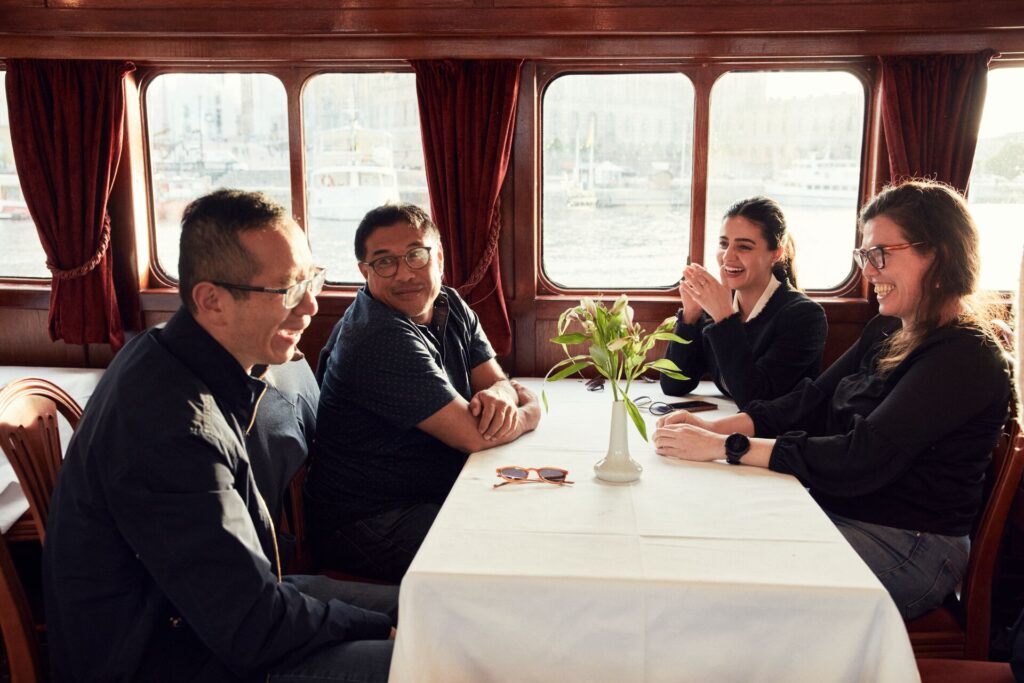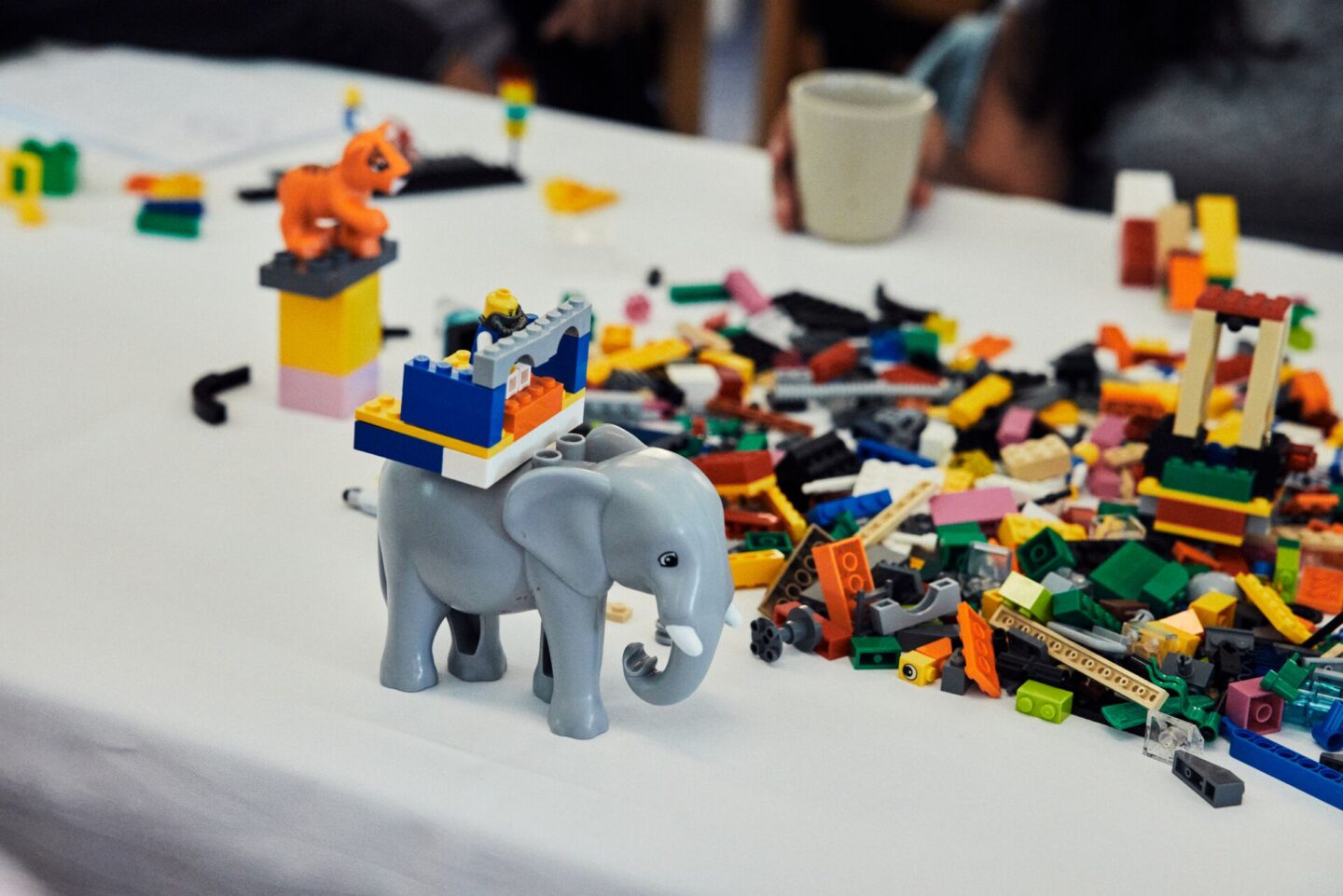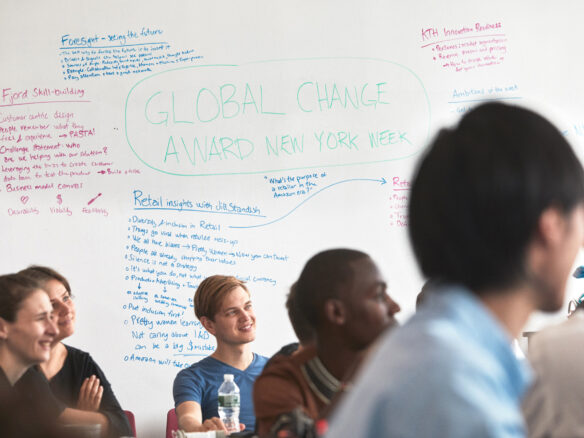“Revolutions always start in small groups. Don’t view constraints like lack of money and lack of people as negative things. It can be positive things. Because it’s when people with a sense of urgency get together in small rooms that revolutions happen.”
These words of wisdom come from Edwin Keh. He’s CEO of The Hong Kong Research Institute of Textiles & Apparel (HKRITA) and a force behind countless innovations intercepting some of the fashion industry’s most urgent issues.
He’s speaking directly to the people who have figured out how to make fabrics from carbon emissions, grow cotton in labs, make blend fabrics recyclable, and a wide range of other mind-blowing innovations with potential to shift the entire industry.
The 24 teams of innovators have all gathered to connect, collaborate and showcase their ideas to various industry stakeholders. Along the way, they’re coached on innovation readiness, impact leadership, media training and much more by world-leading experts.
Here are six takeaways overheard on the ground in Stockholm:
1. Building a responsible business isn’t just a question of ethics; it also correlates with better financial results
“The top 25 per cent of responsible businesses have 14 times higher revenue growth than the 25 per cent at the bottom. This suggests that there is financial advantage in being a responsible company.”
Laila Pawlak, Co-founder & CEO Rehumanize Institute & SingularityU Nordic
Rehumanize Institute is a certified Benefit Corporation that helps companies and leaders develop more responsible businesses. Their research study conducted in collaboration with Accenture has identified the four domains that are most critical to becoming a successful responsible business leader and found Impact leadership — which the event at the Impact Accelerator Week focused on — is the most important.
2. Overinvesting in social relations is key to succeeding in the transformed work landscape
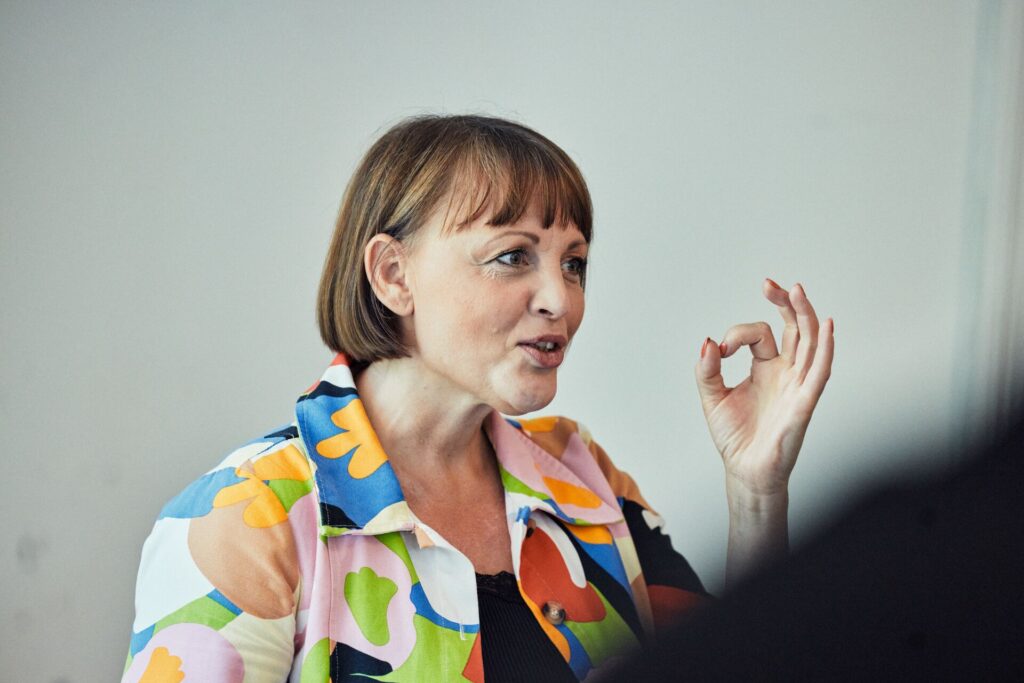
“The pandemic broke the hamster wheel.”
Laila Pawlak
In the past years, many of us have gone from working on location to working virtually to working in a hybrid model. But in her view, tomorrow’s workplace is none of the above. Instead, it will be asynchronized — meaning work in every aspect will be customized to the individual – with respect for the team and task at hand.
Many people will be able to work both from home, another preferred (and often temporary) location or at company locations across different time zones and during the part of the day that’s optimal for them and their current life situation.
“Being at the office is great for innovation and social relations, but honestly it doesn’t make sense for many people to commute for an hour to an office to sit there and send e-mails back and forth to each other,” she says, while underlining that it’s still too early to fully assess and analyse the results of the new landscape.
However, when colleagues aren’t in the same room, companies will have to overinvest in social relations to compensate for the lack of everyday face time. While businesses in the recent past have focused on hardware and software, Laila believes that in the future they will have to add “human ware” and figure out how to unlock human potential fully.
3. Brands need to change
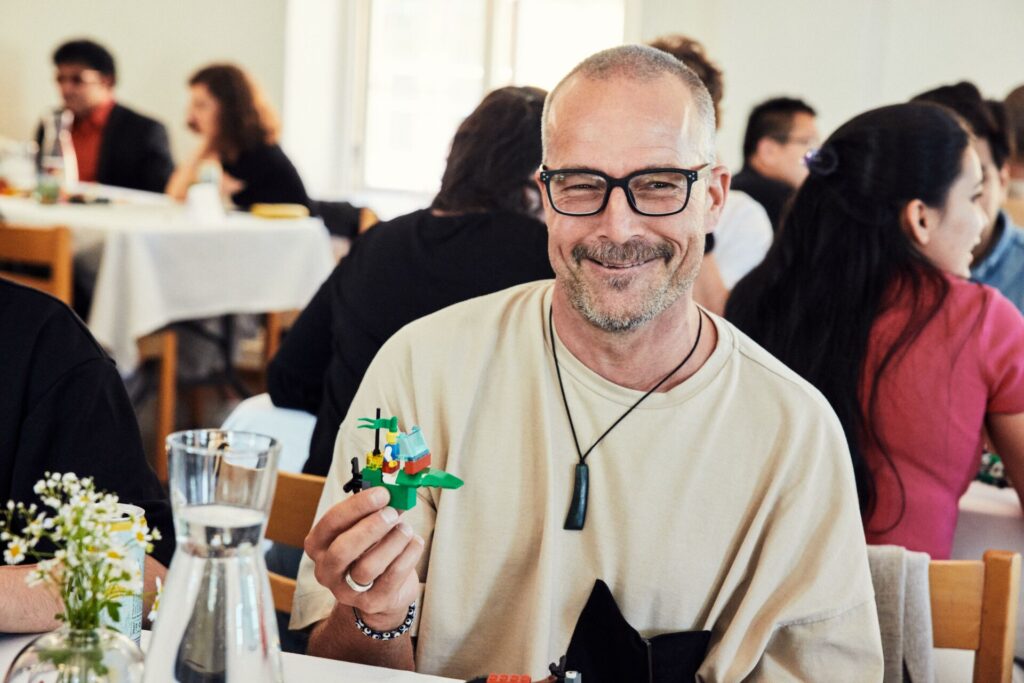
Large corporations are often hesitant to invest in new ideas and innovations. It doesn’t always matter to them if a new material or method is validated and possible to scale — because it might still create friction in old, complex and fragmented systems.
Isaac Nichelson, co-founder of Circular Systems and GCA alumn, spoke candidly about the failures, successes and learning he and his team have faced over the years.
“It’s not easy bringing a new product to an old structure. Supply chains don’t want to change, and it’s difficult to compete with conventional cotton and to manage the constant downward pressure on price.”
“The downward pressure comes from the brands. They need to change for the supply chains to change,” he says about getting companies to step away from the industry standards and opt for innovative alternatives.
4. Release now, refine later
During two days of innovation readiness workshops at KTH The Royal Institute of Technology, the GCA winners were coached on overcoming the barriers and thresholds restraining new ideas and innovations to succeed. Innovation strategist and business coach Donnie Sc Lygonis shared some rules to play by.
Firstly — good enough is good enough, don’t stall a release because you’re waiting to achieve perfection. Refine in time for the second, or third or fourth, release.
Secondly — pilot, simplify and perform small-scale tests proving that your concept works.
And thirdly — work with the right clients in the correct order, even if it’s not the brand or company you envisioned. Over time, the desired client might be influenced by the exposure.
5. Narrative matters!
“There’s only so much the innovation itself can do. Once it’s validated, the biggest challenge is getting the narrative to cut through the noise and reach the right audience,” says Donnie Sc Lygonis.
Developing a narrative and packaging an idea in a way that gets people to listen and become enthusiastic is one of the focal points of the GCA Impact Accelerator bootcamp. Like the rest of us, innovators and entrepreneurs easily get stuck in narratives they’re comfortable with. But, by questioning and challenging it, the barriers and thresholds that hold potential investors and clients back can come down.
“You need to articulate the reason you exist and what you bring to the table: adjust your vocabulary to your audience and speak in a way that it understands.”
Edwin Keh, CEO of HKRITA
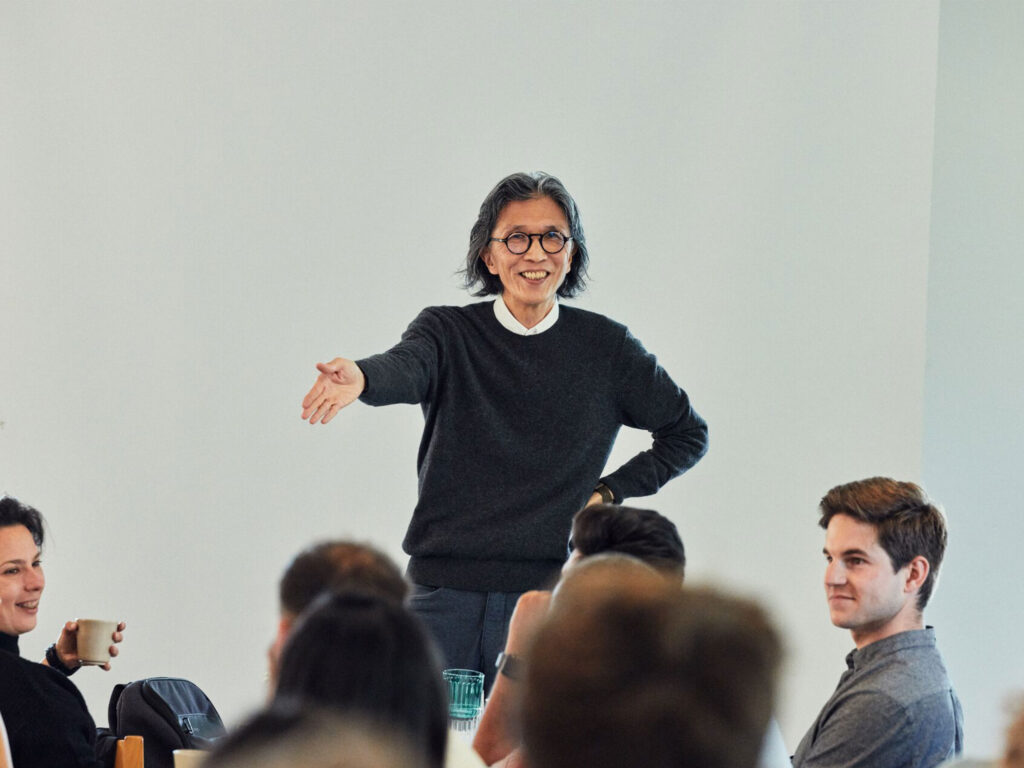
6. Community is crucial for developing and extending innovation
Winning the GCA doesn’t just mean money and support. It means becoming part of a community. Whenever new and previous winners come together, collaborations ignite that continue to push the envelope on innovation.
“Innovation can’t stand in alone. It can’t stay in a vacuum and become successful. We’re learning so much by hearing about the other winners and the alumni’s successes, failings and learnings,” say Neeka and Leila Mashouf of Rubi Textiles: “In the end, it comes down to community. As innovators, we’re supported by, motivated by and benefit from joining together and seeing how we can collaborate with each other to make the industry end-to-end sustainable.”
